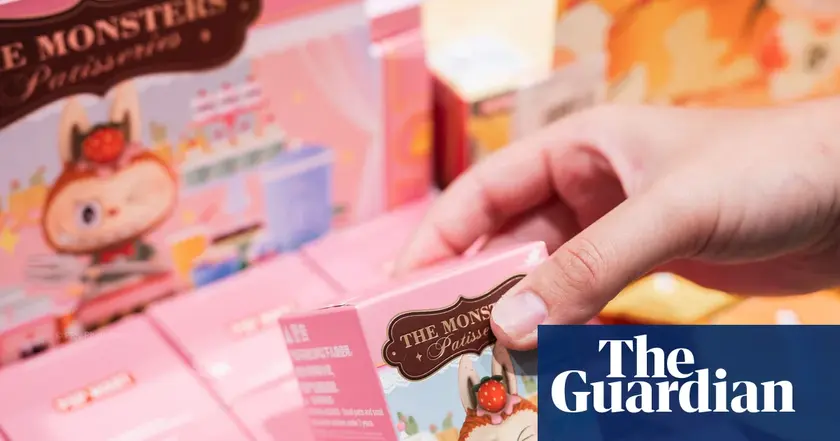T4K3.news
Blind Box Addiction Prompts Regulatory Watch
Growing use of blind boxes in adult shopping is drawing scrutiny from researchers and regulators who warn of gambling-like risks and financial harm.

Grown adults chase mystery toys in blind boxes, with experts warning the habit echoes gambling and can harm mental health and finances.
Blind Box Addiction Stirs Regret and Risk
Jess, 28, from Ireland, says she spends up to 270 dollars a week on blind boxes selling Labubu and other mystery toys. Fans hope to finish a set, guided by social media hype and celebrity endorsements. Pop Mart, the company behind Labubu, has grown into a multi billion dollar business, though its stock briefly dipped after state media condemned blind box marketing as predatory.
Researchers warn that blind boxes can resemble gambling, with a loop of impulsive purchases. Studies link loot box spending to later gambling and psychological distress. Chinese advisers have proposed odds disclosures and spending limits; some Western regulators have touched the issue but enforcement remains uneven. Live drops on TikTok and auction platforms like Whatnot push buyers to act quickly, often paying for items they do not want, while packaging waste and plastic add to environmental concerns.
Key Takeaways
"Honestly, that’s gambling. I’m gonna say it flat out: it’s straight gambling"
Dana Nguyen describes her experience with Labubu purchases
"The buyer’s guilt that I get nearly every time after I’ve spent is insane"
Jess describes the emotional toll of blind box spending
"This became like a game. Some of the time most of the time I didn’t want the stuff"
Bethan explains the compulsion behind purchases
"I feel like my nervous system has calmed a lot more"
Nguyen on reducing purchases after cutting back
The blind box craze shows how modern marketing blends scarcity, platform design and identity building. It taps into a deep human need to complete a collection, not merely own a product but to chase a moment of anticipation. Companies profit by turning purchase into a gamble, and the cost is not only money but debt and mental strain. Regulators are taking notice, but the industry moves fast on live streams and targeted ads, making responsible limits essential rather than optional. A thoughtful approach would balance consumer joy with safeguards that protect vulnerable buyers without destroying a growing cultural trend.
Highlights
- Honestly, that’s gambling I’m gonna say it flat out
- The buyer’s guilt after I’ve spent is insane
- It became like a game and I didn’t want the stuff
- My nervous system has calmed a lot more
Gambling like shopping raises regulatory and public health concerns
The spread of blind boxes blends consumer culture with gambling-like mechanics. This prompts worries about financial loss, mental health risks, and potential harm to vulnerable shoppers. Regulators are examining disclosures, age limits, and spending safeguards, but enforcement remains uneven.
The story asks for clear rules that preserve delight while reducing harm.
Enjoyed this? Let your friends know!
Related News

OLED blind test results

Boxing fatalities prompt safety review

Notre Dame QB race remains unsettled

DAZN faces complaints from boxing fans over streaming problems

Six-month pause in superhero movie releases confirmed

Katie Taylor vs Amanda Serrano 3 carries risk of £1,000 fine for viewers

UnitedHealth Stock Declines Despite Strong Earnings

Thames Water contingency plans approved
